Jtti's Hong Kong cloud server is located in the T3+ data center in Hong Kong. It enjoys exclusive CN2 high-quality bandwidth, unlimited traffic, stronger performance, supports equipment customization, and multiple configuration options are available.
The following is the evaluation of Jtti Hong Kong cloud server, configured with 2 cores 4G 5M CN2
First look at the delay effect of local ping, as shown below:
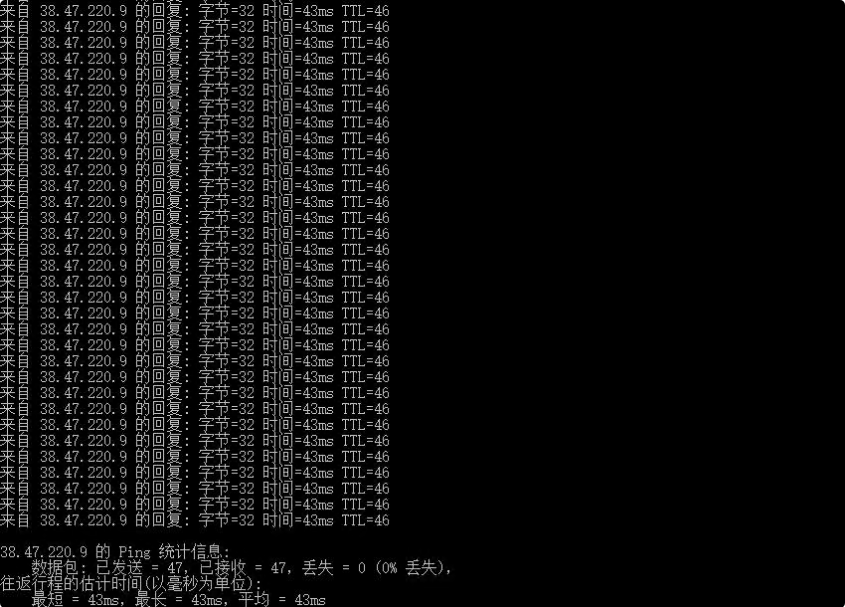
It can be seen that the average delay of the local Ping is 43ms, which is quite good for the Hong Kong cloud server, and the network is very stable, and there is basically no packet loss.
Let's take a look at the delays of China Telecom, China Unicom, and China Mobile, as shown below:
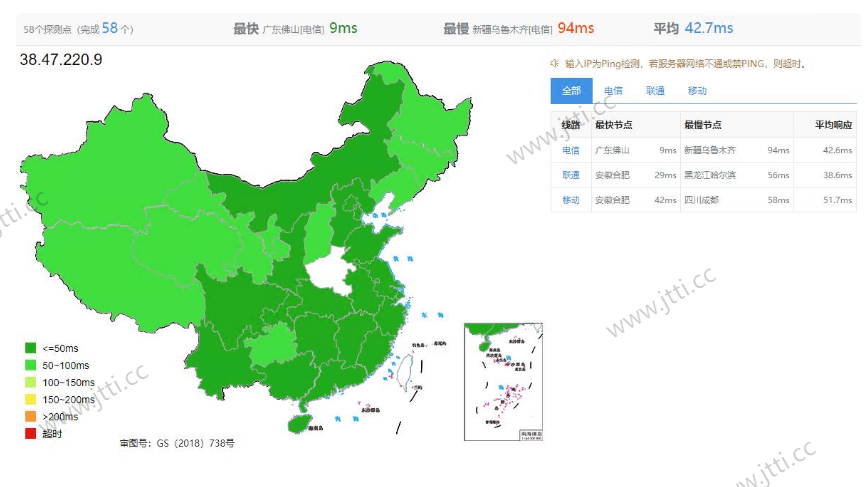
It can be seen that the average delay of the national three-network Ping is about 42ms, of which the telecom network delay is about 42ms, the Unicom network delay is about 38ms, and the mobile network delay is about 51ms.
Next, let's take a look at the network stability of each node in the world, as follows:
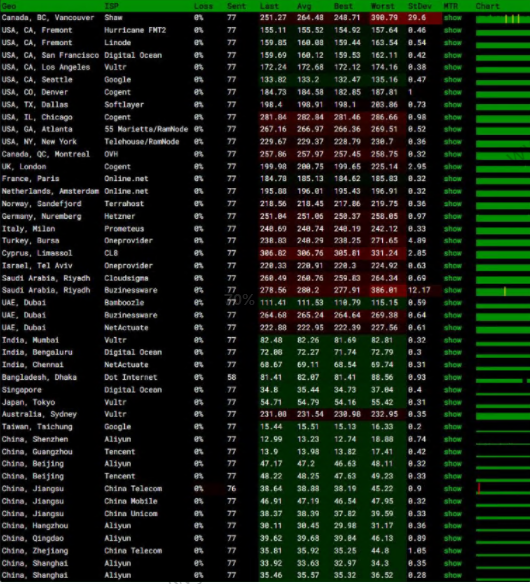
It can be seen that the stability of the network around the world is quite good, there is basically no packet loss, and it can be seen that the network delay in Asia is very low.
Let's take a look at the three-network outbound routing of the Jtti Hong Kong cloud server.
Telecom outbound routing:
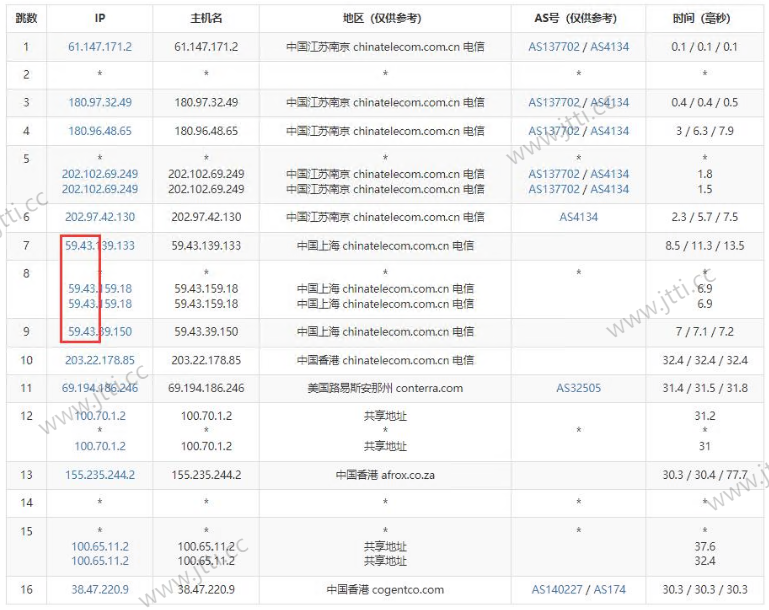
The outbound route of China Telecom is to go out from the Shanghai network port, and then directly connect to the Hong Kong computer room, and use the CN2 line of 59.43.
China Unicom outbound route:
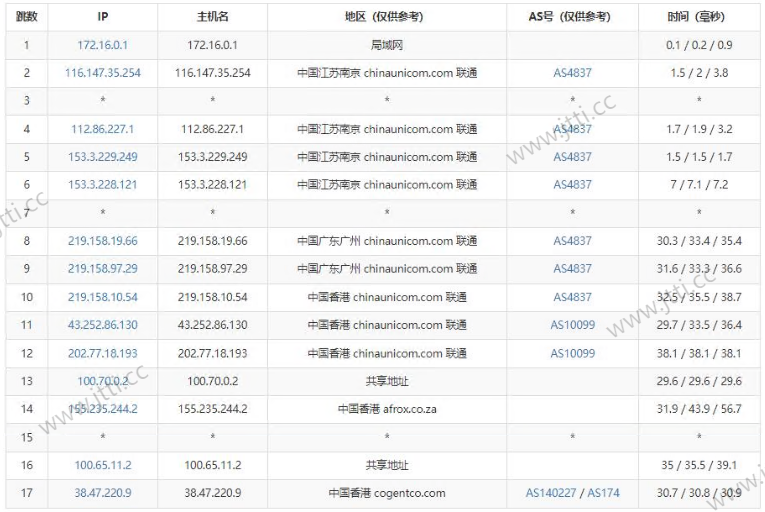
China Unicom's outbound route goes out from the Guangzhou network port, and then directly connects to the Hong Kong computer room, using the AS4837 line.
Mobile outbound routing:
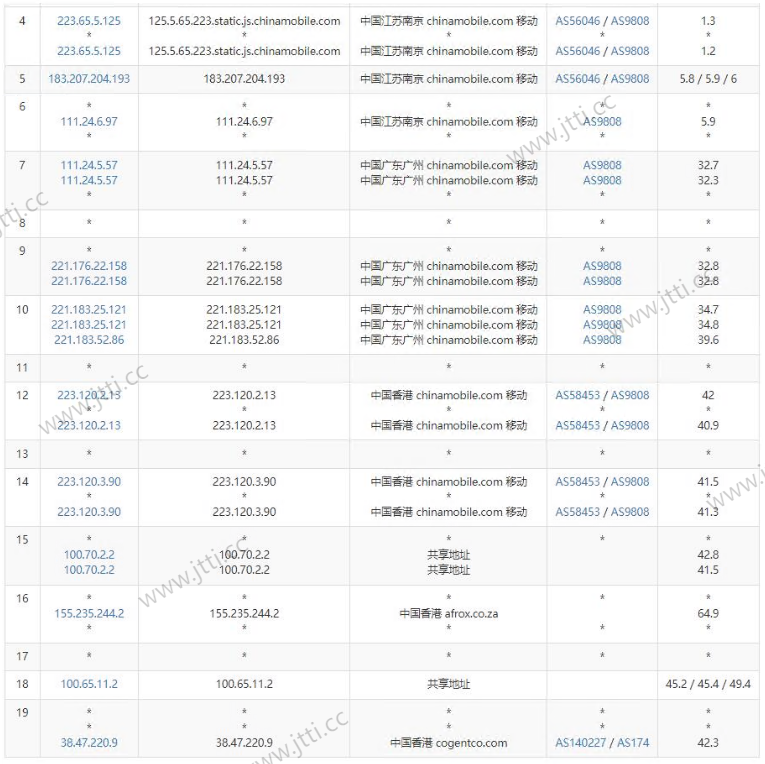
The mobile outbound route goes out from the Guangzhou network port, and then directly connects to the Hong Kong computer room, using the mobile CMI line.
Let's take a look at the situation of the three-network backhaul routing.
Telecom backhaul routing:
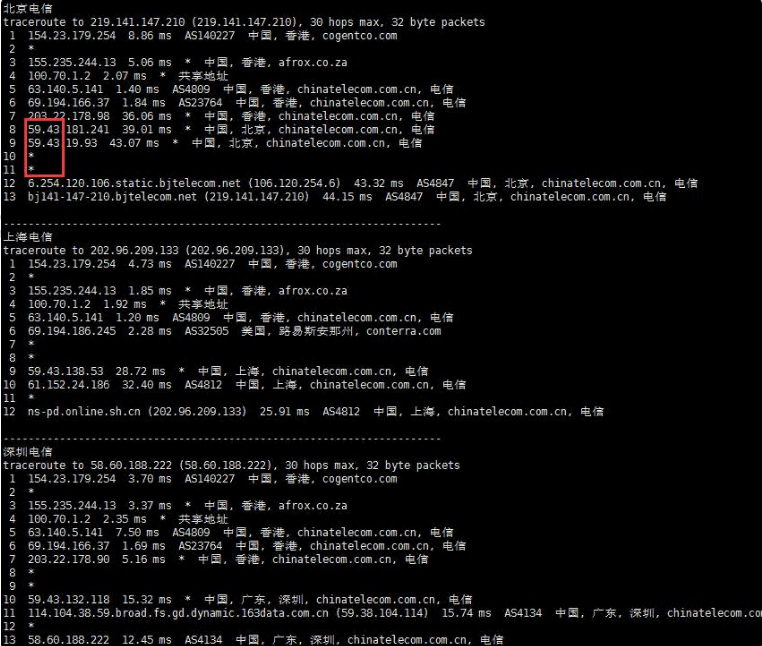
The telecom backhaul route is from the direct connection back to the domestic network port, and the CN2 line of 59.43 is used. Therefore, the telecommunication network uses a two-way CN2 line.
China Unicom return route:
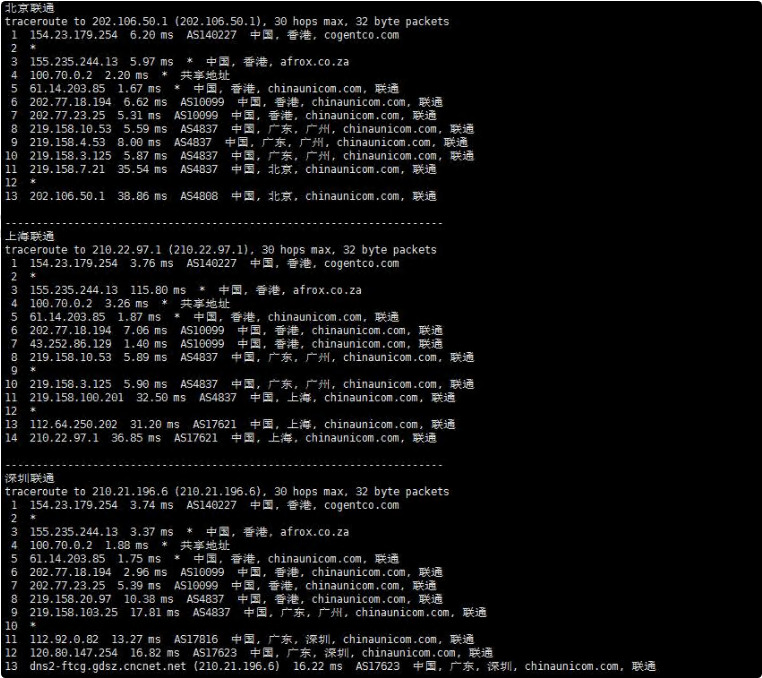
China Unicom's return route is directly connected to the domestic network port from Hong Kong, using the AS4837 line.
Mobile backhaul routing:
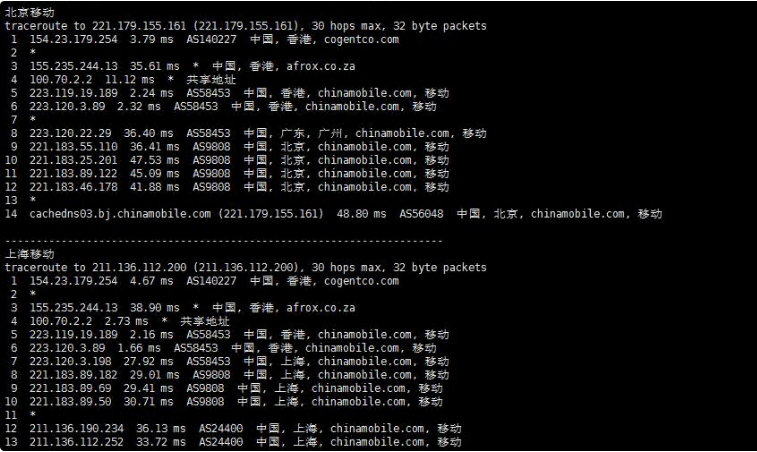
The mobile backhaul route is directly connected to the domestic network, and the CMI line is used.
So summarize the outbound and return routes of the three networks: China Telecom two-way CN2, China Unicom two-way AS4837, and China Mobile two-way CMI.
Let's take a look at the performance and speed of Jtti's Hong Kong cloud server, as follows:
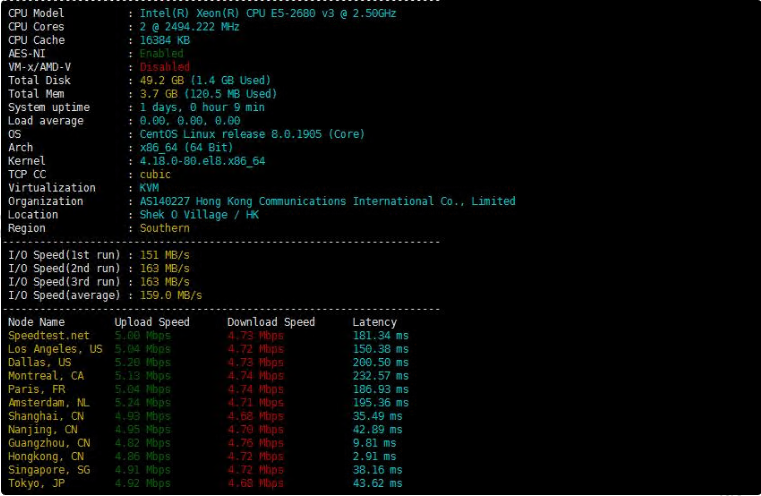
It can be seen that the server uses the Intel E5-2680 V3 processor, the main frequency is 2.5GHz, and the disk IIO is 159MB/s. This performance is quite good.
My test machine uses a bandwidth of 5Mbps, so it can be seen that the upload and download speeds of all parts of the world are basically running at 5Mbps.
The above is the introduction of .Jtti's Hong Kong cloud server related evaluation. Jtti's Hong Kong cloud server is quite good in terms of delay, stability, and line. It is very suitable for our users in mainland China. Users who need a Hong Kong cloud server can refer to it for selection.
Note: The article comes from the evaluation of the third-party platform webmaster.






